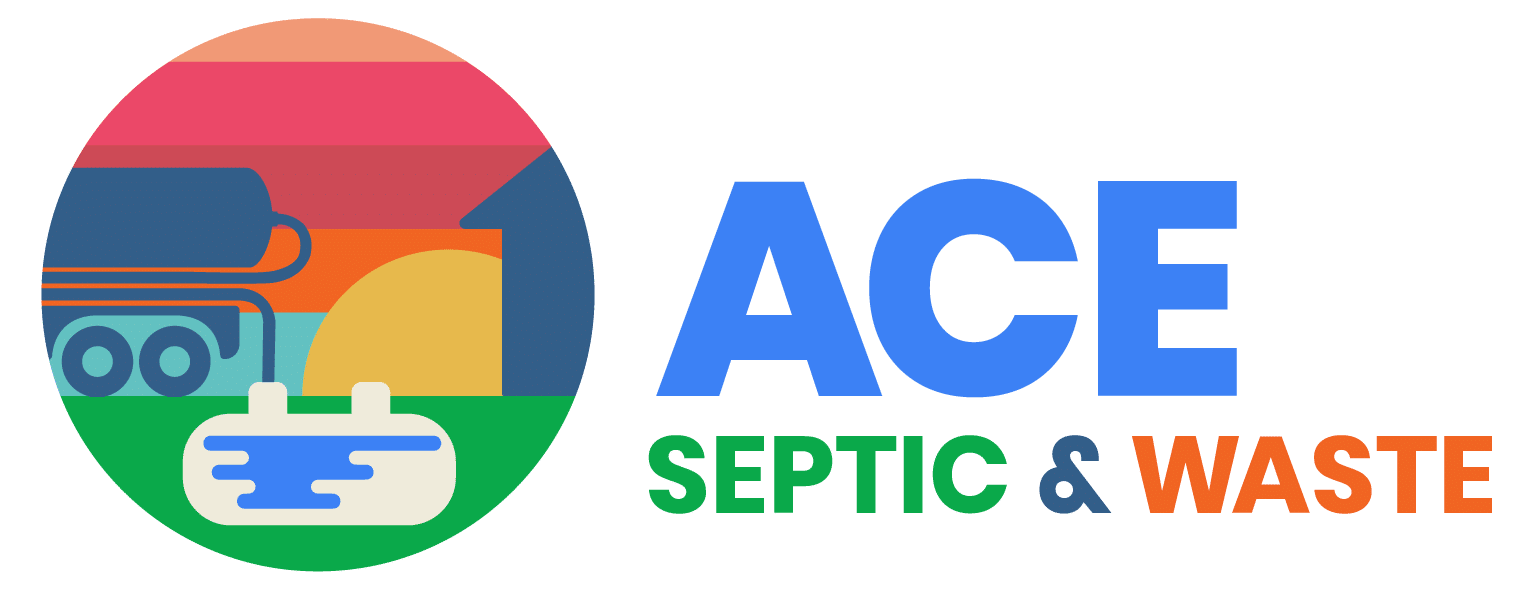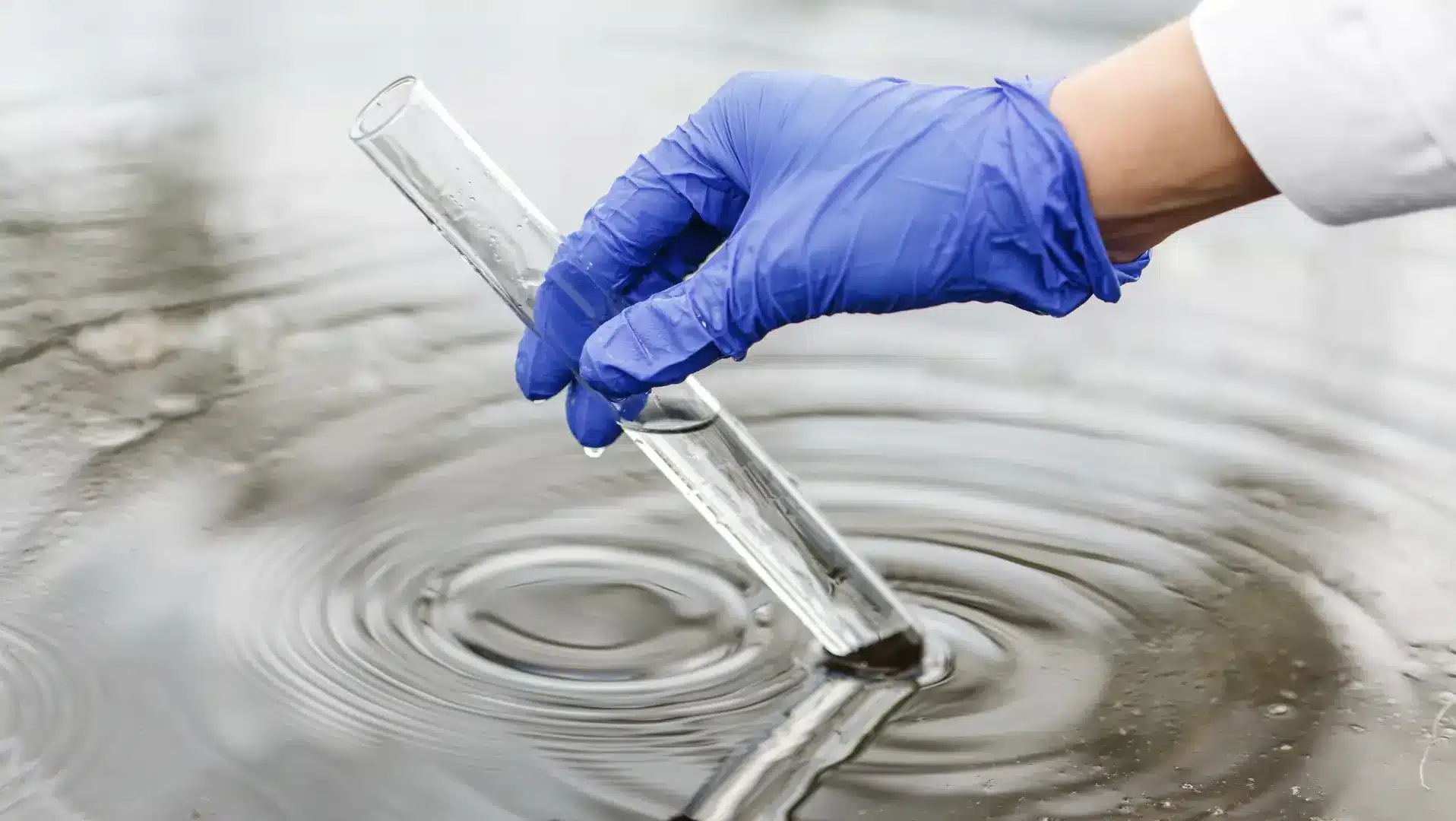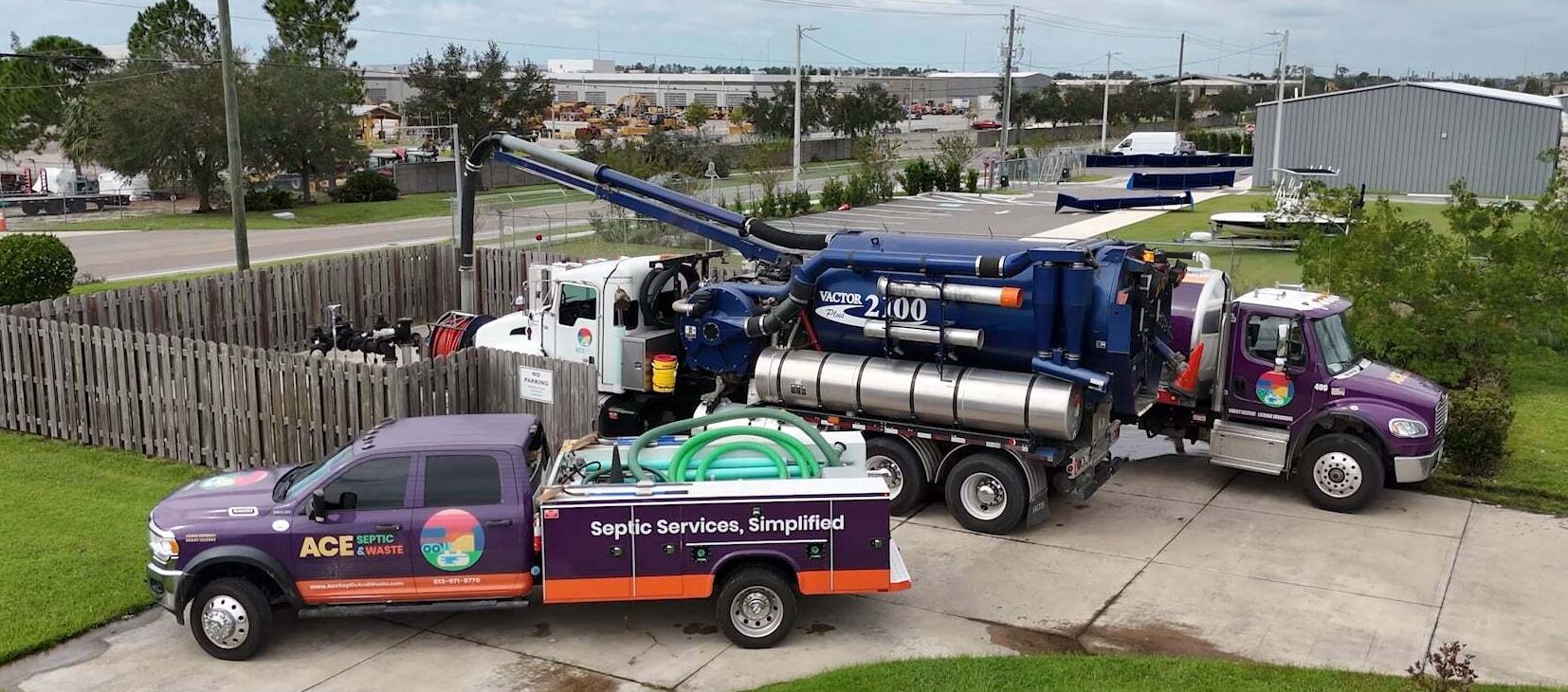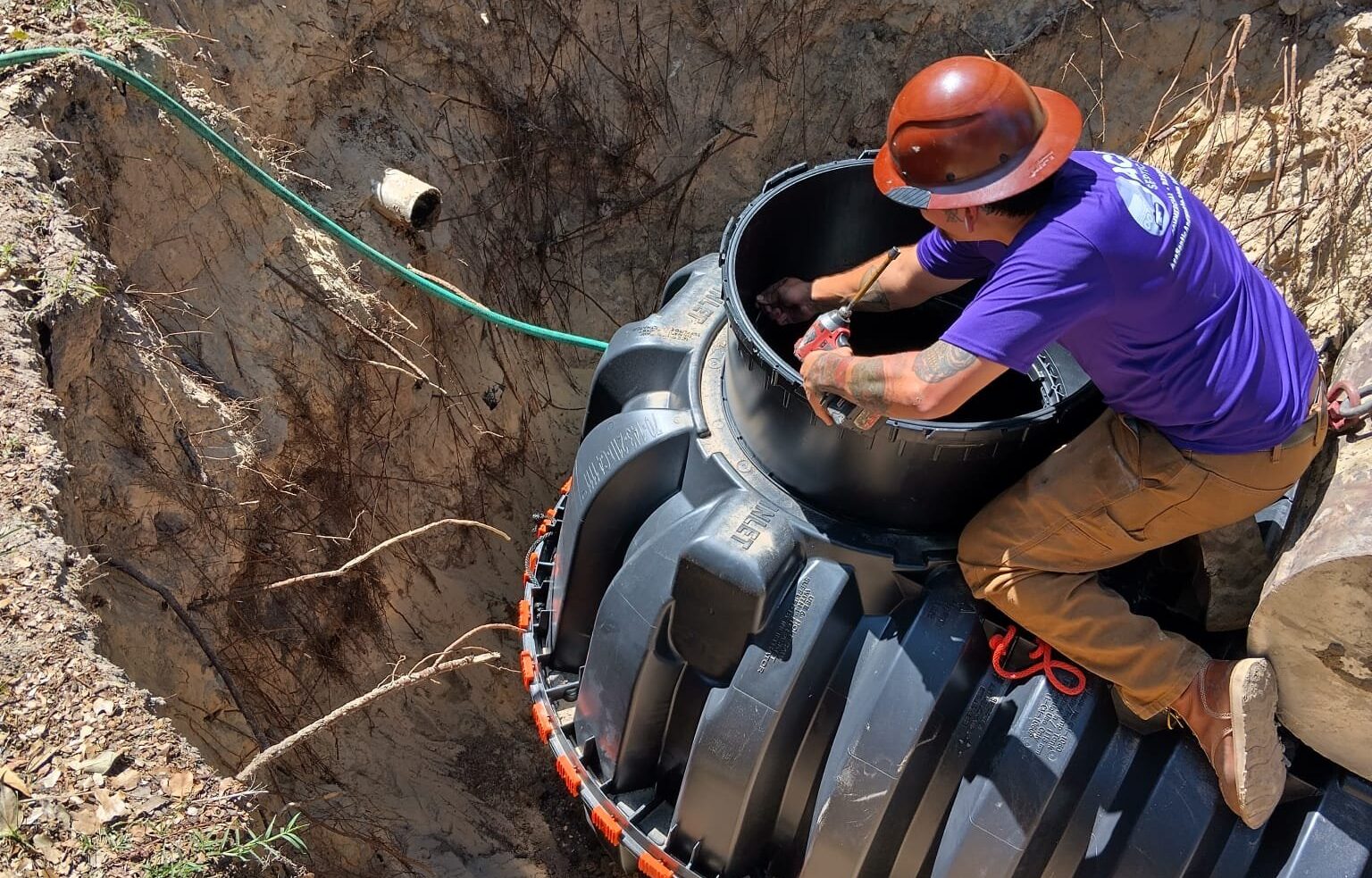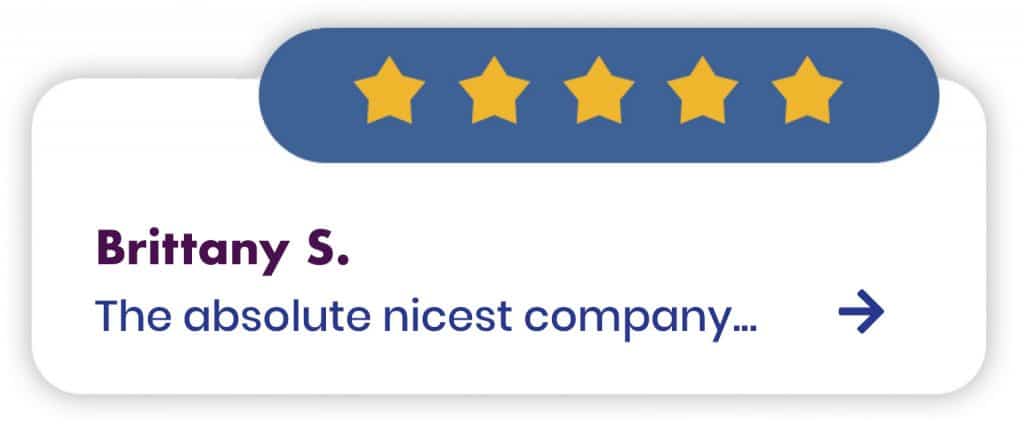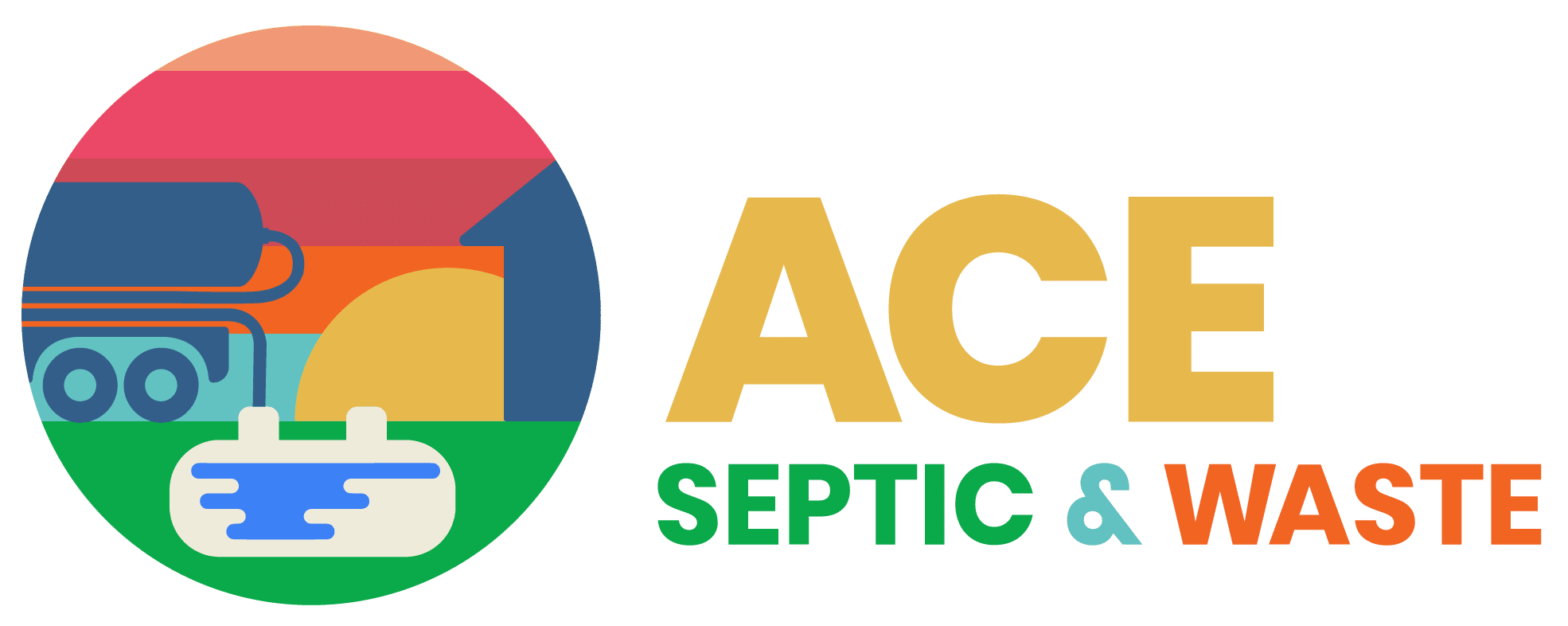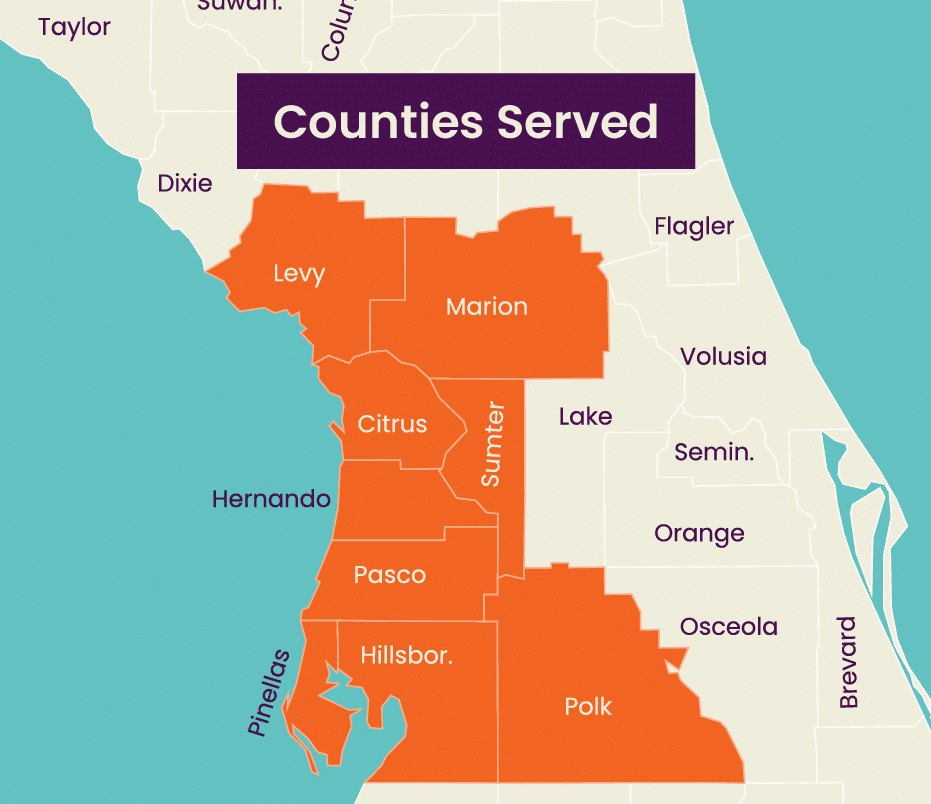For many Florida homeowners, septic systems are a part of life. For those without access to centralized sewage networks, these systems process biosolids and wastewater in environmentally friendly ways. As part of our homeowner’s guide and education of our clients, ACE Septic & Waste has created a comprehensive overview of septic effluent. We’ll cover some common misconceptions, why proper filtration is important, and some best practices regarding good septic maintenance and wastewater treatment.
What is Effluent
Effluent is the partially treated or filtered wastewater that leaves a septic tank or sewage treatment plant after the solid waste has settled. This wastewater usually still contains dissolved or suspended pollutants. Effluent flows out of the septic tank and is directed to a drain field, leach field, or further treatment steps to undergo additional purification before being released into the environment. Managing effluent quality is essential to safeguard water resources and public health.
Common Misconceptions about Effluent
To better understand the environmental impact and the reasons for strict regulation of septic waste, let’s cover a few common misconceptions:
- Effluent is not just water—it contains pollutants that need treatment before release. All wastewater is considered unsanitary and requires treatment before release.
- Not all effluent is equal—Some effluent requires higher levels of filtration and needs advanced systems to reduce more contaminants than basic ones.
- Effluent is not always unsafe—it can contaminate groundwater if not adequately treated or filtered by soil. Septic systems require regular maintenance to ensure effluent safety. Sometimes, effluent is suitable for irrigation, but its use should be monitored to avoid soil and plant contamination. It can be a health risk, and effluent can carry high levels of chemicals like nitrogen that affect plant growth.
How is Effluent Treated?
Treating effluent involves several stages, each designed to reduce the amount of pollutants and pathogens in the water to make it safer for environmental discharge:
- Primary Treatment: In the septic tank, solids settle to the bottom, forming sludge, while lighter substances like oils float to the top, creating scum. The liquid in between, or effluent, moves to the next treatment phase.
- Secondary Treatment: The effluent enters the drain field, where it percolates through the soil. Soil particles filter out bacteria, viruses, and certain nutrients. Microorganisms in the soil further break down contaminants.
- Tertiary treatment (if applicable): Some systems include additional treatment methods, like sand filters, a nitrogen-reducing biofilter (INRB), or constructed wetlands, to clean the wastewater further before it reaches groundwater or surface water bodies.
Environmental Impact of Effluent in Florida
When properly treated, effluent poses minimal risk to the environment. However, untreated effluent profoundly impacts the environment in Florida, a state known for its unique ecosystems, including wetlands, springs, and coastal waters. Florida’s environment is particularly sensitive to changes in water quality due to its high water table and the permeability of its soil, making proper wastewater treatment and effluent management crucial.
Here’s how effluent quality can affect the environment in Florida:
- Water Contamination: Poor effluent quality can lead to the contamination of groundwater, which is a primary source of drinking water in Florida.
- Harm to Aquatic Life: When discharged into water bodies, wastewater high in nutrients such as nitrogen and phosphorus can lead to algal blooms. These blooms can deplete oxygen in the water, causing fish kills and harming aquatic ecosystems through eutrophication. Certain types of algae can also produce toxins that are harmful to marine life and humans.
- Impact on Coral Reefs: Florida is home to the largest coral reef system in the continental United States. Poor effluent quality, such as effluent-containing sediments and chemicals, can harm these delicate reef ecosystems. Corals are sensitive to changes in water quality, and pollutants can stress coral, leading to coral bleaching and death.
- Degradation of Wetlands: Florida’s wetlands serve as critical habitats for many species and act as natural water filters. Unfiltered effluent can degrade these wetlands, reducing their ability to filter water, support wildlife, and protect against flooding.
- Public Health Risks: Effluents that contaminate Florida’s beaches and waterways can pose direct health risks to people who come into contact with the water. Bacteria and viruses in untreated or poorly treated effluent can cause illnesses, leading to beach closures and impacting tourism and recreation.
Best Practices for Septic Effluent Management
To effectively treat effluent in your septic system, prevent damage to your system, and avoid environmental harm, follow these guidelines:
- Inspect and pump your septic tank every 2-5 years to keep sludge and scum from reaching the drain field.
- Use water wisely to avoid overburdening your septic system. Fix any leaks, choose water-saving devices, and stagger the use of water-intensive appliances.
- Dispose of waste properly. Don’t flush harmful chemicals, non-biodegradable items, or too much household cleaner, as they can damage the treatment process and the system itself.
- When landscaping around your septic system, avoid planting deep-rooted vegetation near the drain field, and don’t drive or build over it to prevent system damage.
Be Septic Smart with ACE Septic!
While effluent dispersal is only one part of wastewater management, it has a far-reaching impact on Florida’s environment and public health. Understanding proper treatment is essential for preventing pollution and keeping our beautiful state vibrant and healthy for decades to come.
For more information about your septic system or to schedule maintenance or an inspection, contact ACE Septic & Waste. We are Tampa Bay and Central Florida’s leading septic services provider with hundreds of 5-star reviews. With unparalleled service and fair pricing, your wallet and the environment will thank you.
